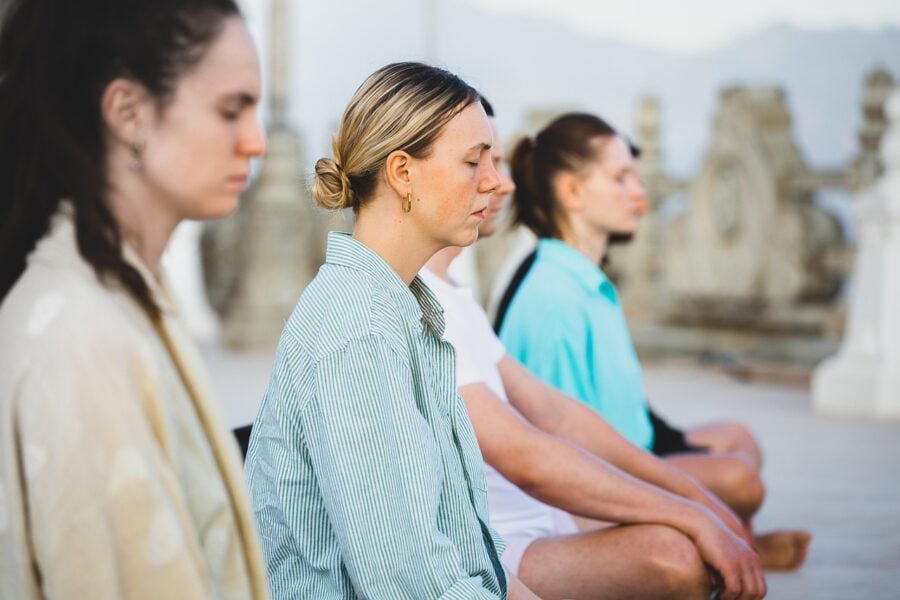A new investigation has uncovered surprising risks associated with spiritual and meditative practices, revealing that certain techniques and personal experiences can trigger unexpected mental phenomena with potentially profound consequences.
Researchers from a multinational team have mapped out the complex landscape of what they call “emergent phenomenology” (EP) — sudden, unusual mental or physical experiences that can dramatically alter an individual’s perception of reality. Their study, published in Clinical Psychological Science, provides the first comprehensive look at the factors that might trigger these transformative experiences.
The research drew from a massive survey of 3,133 participants across diverse populations, using sophisticated statistical analysis to identify specific risk factors. Surprisingly, the study found that some common practices might dramatically increase the likelihood of experiencing these unusual mental states.
“We found very high increases in risk for these experiences associated with past psychedelic use, reality distorting practices, and total hours spent in spiritual or meditative practice outside retreats,” the researchers noted in their study summary.
The experiences themselves range from the subtle to the extraordinary. Some participants reported sensing the world as “a dream or cartoon,” experiencing “ecstatic thrills running through the body,” or having profound “out of body experiences.” While many of these experiences can be positive, approximately 13% of participants reported “moderately intense or greater suffering” following such events.
Most striking were the specific practices associated with increased risk. Attempting divine, magical, or occult practices increased the likelihood of experiencing these phenomena by 159%. Past psychedelic use raised the risk by 82%, while practices involving “contemplation of mysteries” increased it by 118%.
Interestingly, not all spiritual practices carried the same risk. Prayer, for instance, emerged as a protective factor, actually decreasing the likelihood of experiencing these unusual mental states.
Personal characteristics also played a significant role. Individuals with a past diagnosis of mental illness were 37% more likely to experience these phenomena. Traumatic or spiritually powerful childbirth experiences increased the risk by 71%.
The researchers hope their findings will contribute to future diagnostic guidelines and provide crucial insights for clinicians, spiritual teachers, and practitioners. “These results can help to predict when these phenomena might emerge in individuals, guide practitioners seeking to obtain or avoid these experiences, and enable clinicians to better differentiate between psychosis and events more often associated with contemplative or spiritual practice,” they explained.
While the study opens up fascinating questions about consciousness and spiritual experience, the researchers are careful to emphasize the need for further investigation. They are calling for longitudinal studies to better understand the causal relationships between spiritual practices, unusual mental experiences, and their long-term psychological impacts.
For now, the message is clear: not all meditation and spiritual practices are created equal, and practitioners should approach them with careful, informed awareness.
Discover more from NeuroEdge
Subscribe to get the latest posts sent to your email.

